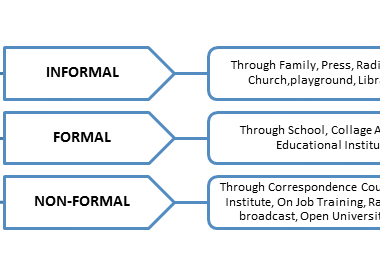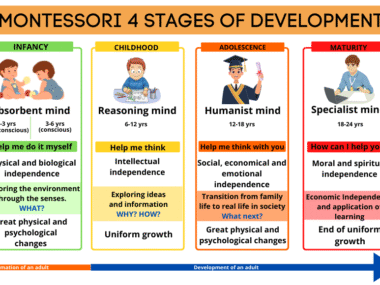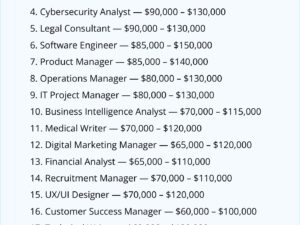What Is a Trade School? And How Can You Apply?
Welcome to the world of trade schools, where hands-on learning meets practical skills and endless opportunities. If you’re considering a career change or looking to explore a specialized field, trade schools could be the perfect choice for you. But what exactly is a trade school?
Benefits of Attending a Trade School
Trade schools offer a range of benefits that make them an attractive option for many individuals seeking a practical education. One of the main advantages is the focus on hands-on learning. Unlike traditional colleges or universities, where students often spend a significant amount of time in classrooms, trade schools prioritize practical training. This means that students can gain real-world experience in their chosen field, allowing them to develop the skills and confidence necessary for success.

Another benefit of attending a trade school is the shorter duration of the programs. While a bachelor’s degree at a traditional college can take four years or more to complete, trade school programs typically last anywhere from a few months to a couple of years. This shorter timeframe allows students to enter the workforce sooner and start earning a living while their peers in traditional colleges are still studying.
Additionally, trade schools often have strong connections with industry professionals and employers, leading to increased job placement opportunities. Many trade schools have partnerships with local businesses and organizations, enabling students to gain internships or apprenticeships that can further enhance their learning and provide valuable networking opportunities.
Difference Between Trade Schools and Traditional Colleges
While trade schools and traditional colleges both offer education, they differ in their approach and focus. Traditional colleges typically provide a broad-based education, with students required to complete a variety of general education courses in addition to their major. This can be beneficial for those who want a well-rounded education or are unsure of their career path.
Trade schools, on the other hand, concentrate solely on teaching the skills and knowledge needed for a specific trade or occupation. This targeted approach allows students to delve deeply into their chosen field and gain expertise quickly. Trade school programs are designed to be practical and hands-on, with coursework that is directly applicable to real-world situations.
Another difference between trade schools and traditional colleges is the cost. Trade school programs are often more affordable than traditional college degrees, making them an attractive option for those who want to avoid the high costs associated with higher education. Additionally, trade school graduates tend to enter the workforce sooner and start earning, potentially reducing their student loan burden.
Popular Trade School Programs and Industries
Trade schools offer a wide range of programs and industries to cater to different interests and career goals. Some of the most popular trade school programs include:
- Carpentry and Construction
The carpentry and construction industry provides opportunities for those interested in building and working with their hands. Trade school programs in this field typically cover topics such as blueprint reading, framing, roofing, and finishing techniques. Graduates can pursue careers as carpenters, construction managers, or contractors.
- Plumbing and HVAC
Plumbing and HVAC (heating, ventilation, and air conditioning) programs train students in the installation, repair, and maintenance of plumbing and HVAC systems. These programs often include hands-on training and provide the necessary knowledge and skills to work in residential, commercial, or industrial settings.
- Automotive Technology
Automotive technology programs prepare students for careers in the automotive industry. These programs cover topics such as engine repair, electrical systems, and diagnostics. Graduates can work as automotive technicians, service advisors, or in automotive management positions.
- Culinary Arts
Culinary arts programs focus on developing cooking and food preparation skills. Students learn techniques, culinary theory, and gain practical experience in professional kitchens. Graduates can pursue careers as chefs, bakers, caterers, or restaurant managers.
- Electrician Training
Electrician training programs teach students how to install, repair, and maintain electrical systems. These programs cover topics such as electrical theory, wiring, and safety practices. Graduates can work as electricians in residential, commercial, or industrial settings.
These are just a few examples of the many trade school programs available. Whether you’re interested in healthcare, technology, beauty, or any other field, there’s likely a trade school program that can help you turn your passion into a successful career.
Steps to Apply to a Trade School
Applying to a trade school is often a straightforward process. Here are the general steps you need to follow:
- Research and Choose a Trade School
Start by researching trade schools that offer programs in your desired field. Consider factors such as location, program reputation, facilities, and cost. Visit the school’s website, attend virtual or in-person open houses, and reach out to current or former students to gather more information.
- Meet the Prerequisites
Most trade schools require applicants to have a high school diploma or GED equivalent. Some programs may have additional requirements, such as specific courses or minimum GPA. Make sure you meet all the prerequisites before proceeding with the application.
- Submit an Application Form
Once you’ve chosen a trade school, complete and submit their application form. Provide accurate and up-to-date information about your educational background, work experience (if applicable), and personal details. Some schools may require a non-refundable application fee.
- Attend an Interview (If Required)
In some cases, trade schools may require applicants to attend an interview as part of the application process. The interview allows the school to assess your suitability for the program and gives you an opportunity to ask questions and learn more about the school.
- Submit Required Documents
Along with the application form, you may need to submit additional documents such as transcripts, letters of recommendation, or a personal statement. Follow the school’s instructions carefully and ensure that all required documents are submitted by the specified deadline.
- Pay Any Required Fees
Trade schools may have various fees associated with the application process, such as application fees, enrollment fees, or materials fees. Make sure to pay any required fees promptly to complete the application process.
- Await the Admission Decision
After submitting your application, the trade school will review your materials and make an admission decision. This process may take a few weeks, so be patient. If you’re accepted, you’ll receive an acceptance letter outlining the next steps to secure your spot in the program.
Application Requirements and Deadlines
Each trade school has its own specific application requirements and deadlines. It’s essential to thoroughly review the school’s website or contact their admissions office to understand what documents and information you need to provide, as well as the application deadlines. Missing deadlines or failing to submit all required materials can jeopardize your chances of acceptance.
Financial Aid Options for Trade School Students
Trade school students have various financial aid options to help fund their education. Some possibilities include:
Federal Financial Aid
Trade school students can apply for federal financial aid by completing the Free Application for Federal Student Aid (FAFSA). This application determines your eligibility for grants, loans, and work-study programs. Be sure to submit the FAFSA by the deadline to maximize your chances of receiving aid.
Scholarships and Grants
Many organizations, foundations, and private companies offer scholarships and grants specifically for trade school students. These awards can help cover tuition costs and other expenses. Research and apply for scholarships and grants that align with your field of study.
Employer Tuition Assistance
If you’re currently employed or plan to seek employment in a related field, check if your employer offers tuition assistance or reimbursement programs. Some companies may support their employees’ education by covering a portion or all of the tuition costs.
Work-Study Programs
Some trade schools offer work-study programs that allow students to earn money while gaining practical experience in their field. These programs typically involve working on campus or in a related industry, providing financial support and valuable hands-on training.
Choosing the Right Trade School for Your Career Goals
Selecting the right trade school is crucial for your success and satisfaction as a student. Here are a few factors to consider when making your decision:
Program Accreditation
Ensure that the trade school and the specific program you’re interested in are accredited by a recognized accrediting body. Accreditation ensures that the school meets certain standards of quality and that the program’s curriculum and instructors are reputable.
Industry Connections and Job Placement Rates
Research the trade school’s connections with industry professionals and employers. A school with strong ties to the industry can provide valuable networking opportunities and increase your chances of finding employment after graduation. Look for schools with high job placement rates to ensure a smooth transition into the workforce.
Facilities and Resources
Visit the trade school’s campus if possible, or take virtual tours to get a sense of their facilities and resources. Ensure that the school has the necessary equipment, technology, and materials to support your learning and practical training.
Reviews and Alumni Feedback
Read reviews and testimonials from current and former students to gain insights into their experiences with the trade school. Consider reaching out to alumni to ask about their career progress and how well the school prepared them for the industry.
Cost and Financial Considerations
Evaluate the cost of tuition and any additional fees associated with the trade school. Consider your financial situation and explore the available financial aid options to determine how feasible it is for you to attend the school.

By considering these factors, you can make an informed decision and choose a trade school that aligns with your career goals and provides the best opportunities for your future.
Tips for Success in Trade School
Once you’ve been accepted into a trade school program, it’s important to make the most of your experience. Here are some tips for success:
1. Be Prepared and Punctual
Arrive at class or training sessions on time and come prepared with the necessary tools, textbooks, or materials. Being organized and punctual demonstrates your commitment to learning and helps you make the most of your time in the program.
2. Actively Participate
Engage in class discussions, ask questions, and seek clarification when needed. Actively participating in your education will enhance your understanding of the subject matter and help you build relationships with instructors and classmates.
3. Take Advantage of Resources and Support
Trade schools often provide various resources and support services to help students succeed. Utilize these resources, such as tutoring centers, career counseling, or student organizations, to enhance your learning experience and connect with like-minded individuals.
4. Develop Professional Relationships
Network with instructors, industry professionals, and fellow students. Building professional relationships can lead to mentorship opportunities, internships, job offers, or valuable connections in your chosen field.
5. Gain Practical Experience
Take advantage of any opportunities to gain practical experience in your field. Participate in internships, externships, or apprenticeships to apply your knowledge and develop practical skills that will set you apart in the job market.
6. Stay Updated with Industry Trends
Stay informed about the latest trends, technologies, and developments in your industry. Subscribe to trade magazines, join professional associations, and attend industry events to stay up-to-date and continuously improve your skills and knowledge.
By following these tips, you’ll maximize your chances of success and be well-prepared for a rewarding career in your chosen trade.
Conclusion
Trade schools offer a practical and focused approach to education, preparing students for successful careers in various trades and industries. With their emphasis on hands-on learning, shorter program durations, and strong connections to industry professionals, trade schools provide a unique educational experience that can lead to fulfilling and well-paid careers.
If you’re ready to embark on a hands-on educational journey, start researching trade schools in your desired field, meet the prerequisites, and begin the application process. Remember to consider factors such as program accreditation, industry connections, facilities, and financial aid options to choose the right trade school for your career goals.
Invest in your future by attending a trade school and acquiring the practical skills and knowledge needed to excel in your chosen trade. Whether you’re interested in working with your hands, building things from scratch, or solving complex problems, trade schools can equip you with the tools you need to succeed. Apply to a trade school today and take the first steps towards your dream career.










